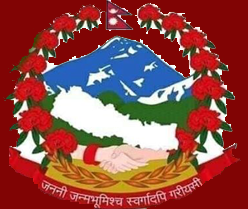Information Collection and Analysis
Realizing the eminence and prominence of information collection, the department uses two major sources of information.
Internal Source: Information on revenue leakages, illegal imports and customs fraud, foreign exchange abuses, sources of illegal income etc. is collected internally via the personnel working at the department and its unit offices and other point of contacts.
External Source: Information on illegal imports, customs fraud, foreign exchange abuses, ill-gotten property etc. is collected externally through the mobilization of tipsters, squealers, informants, complaint letters, newspapers, Ministry of Finance, Nepal Rastra Bank, Commission on the Investigation of Abuse of Authority (CIAA), National Vigilance Center (NVC), and other external agencies – both government and non-governmental.
Upon the receipt of information, facts and allegations are minutely analyzed. The field visits, detailed study of the transactions, collecting additional proofs, mobilization of flying squad along the highway, detention and seizure of mode of transports, raid of the premises, written explanation of the taxpayers, investigation and cross verification is conducted, if needed.
Investigation, Adjudication and Case File
The following action is taken after the investigation and cross verification:
- If revenue leakages are discovered, the evaded tax, its penalty and retribution is recovered under the jurisdictional provision of respective acts and rules.
- In general, using the delegated authority to customs officer and tax officer respectively, provisions laid in the customs act and rule are used to recover if customs duties are found to be evaded and provisions laid in the Value Added Tax act and rule are used to recover if VAT is found to be evaded. In the case of excise duty and income tax evasion, referral to the concerned revenue offices is made within the jurisdiction of the respective acts.
- Appeal can be made to Revenue Tribunal (RT) in the case of customs related decisions while in the case of VAT decisions, administrative appeal is allowed to the Director General of IRD at the first level and if needed, the second level of appeal is allowed to the RT.
- Cases of indistinct characters and ambiguous nature in their legal affairs are, with the prior approval of the district attorney, sued to the district courts under the Revenue Leakages (Investigation and Control) Act, whose appeal is allowed to the appellate court.
- Cases of foreign exchange abuse are dealt with the concurrence of office of the district attorney and filed to the District Court of the respective origin of crimes.
- Decisions, after the approbation of the office of the government attorney, are made whether to file or not after the preliminary investigation by the department in the case of anti-money laundering.

